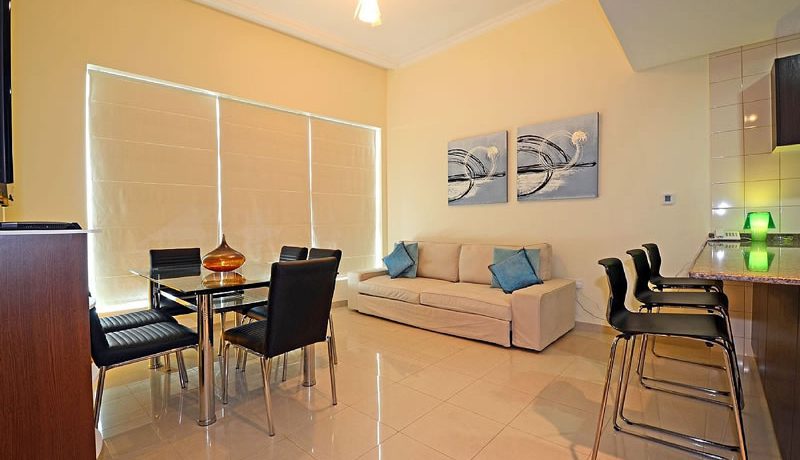This allows them to better tackle weak demand for annual contracts and falling rents
Dubai: Finding it difficult to rent out your brand new property? Then try the short-term. And not just through airbnb.
Dubai’s property market is starting to see a multitude of businesses/portals that offer short-term rental options. Rather than think one-year tenancy contracts, landlords too are changing their mindsets to go with anyone willing to sign on for five days or more. For the wider market too, short-term stays are proving a welcome boost because the last thing anyone needs to see are brand new apartments and villas sitting empty waiting for a full-year tenant to show up.
“A studio could be rented for $70 (Dh257) a day and a villa for $1,000,” said Vinayak Mahtani, CEO of bnbme, a recently formed holiday home management company. “It’s a misconception that holiday homes are cheaper than hotels — it ultimately depends on what you plan to offer the stays with.”
His company specialises in the upper tier of short-stay vacations, with under 30 properties in its portfolio. This includes access to some of the Fairmont residences out there on the Palm. The plan is to add a further 15-20 properties to the company’s leasing portfolio by year-end.
So, is the demand for short-stays coming from tourists wanting to catch the sun? Or a business traveller?
“The type of demand depends on where the property is,” said Mahtani. “On the Palm, 90 per cent of the short-stay demand is generated from tourists. And even from within the UAE, from families wanting a bit of a getaway spot but without leaving the emirate. Some of the villas are booked for the private pools and family gatherings.
“At JLT (Jumeirah Lake Towers, demand generation is 80 per cent from those here on work-related purposes or new employees still searching for a permanent accommodation in the city. These stays tend to average a couple of weeks.
“At the Downtown, another popular spot for a slightly premium short-stay, demand type is 50:50 between tourist and business traveller.”
According to Manika Dhama, Associate Partner at the consultancy Cavendish Maxwell, “The trend of short-term rentals has improved since the revised regulations from DTCM (Dubai Tourism & Commerce Marketing) in 2016 on holiday homes, which allowed individual home owners to work directly with DTCM rather than through operators.
“At the end of 2016, DTCM had announced that more than 1,800 such units had been approved and were operational.
“Lease term with tourists mirrors the average length of stay within the wider hospitality offerings in Dubai, which is around 3.5 days. Other longer terms of about a week or more also exist, and these are usually from new entrants to the job market who’re awaiting their permits and papers before moving into regular residential accommodation.”
Dhama reckons that this category can expect even better days all through the run up to Expo 2020. Individual owners could either place their units with existing operators or obtain individual licenses from DTCM.
For those targeting the pleasure-seeking clientele who want experiences much more than what a hotel stay can offer, seasonality counts. “In recent weeks, the demand was from the Chinese, with the autumn festival on, and next few weeks will see demand from India ahead of Diwali,” said Mahtani. “Then the peak season beckons with Europe being the most likely source of demand from November through January.”
Mahtani’s firm does not directly own any of the properties in its portfolio. What about competition from an airbnb in the future? “Airbnb is one of the sites we do business with, but there are certain target markets where travellers don’t use airbnb at all,” he added. “We have multiple alliances with sourcing portals, and that’s been working for us.”
The ins and outs of offering short-stay properties
For landlords it is both a measure of reducing void periods and netting higher overall returns, even with the set-up costs involved. “This could include service charges, utilities, annual maintenance fees, DTCM and building management fees, insurance, supplies, operator fees (20 per cent of rental), furnishing and marketing costs,” said Manika Dhama at Cavendish Maxwell. “While the calculation of net returns varies for each building and apartment type, the comparison is between all the above costs against the chargeable hotel rate per night, assuming around 60-65 per cent occupancy in the current market. “In popular locations and buildings where this expected net income is higher than the annual rent for a regular apartment, landlords can choose the short-term rental option.”
All rights reserved to the initial publisher for Gulf News
Collected and published by Arms &McGregor International Realty® editorial team. Get in touch with us at [email protected]

